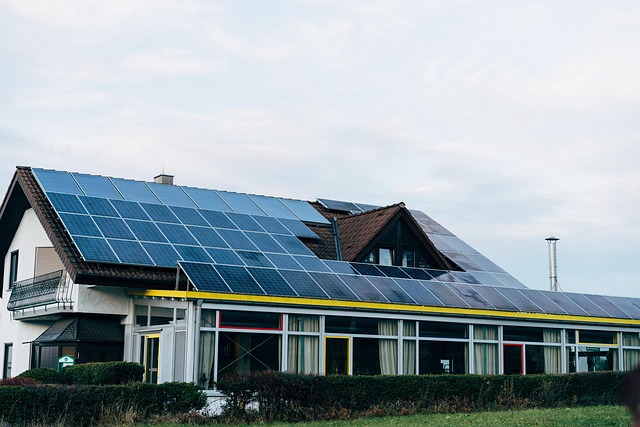The Future of Home Heating: Heat Pump Options in 2025
As we approach 2025, the landscape of home heating is evolving rapidly, with heat pumps taking center stage. This article explores the innovative heat pump options that will be available in 2025, providing a comprehensive guide for homeowners looking to upgrade their heating systems.

What are the latest advancements in heat pump technology for 2025?
Heat pump technology is set to make significant strides by 2025. Manufacturers are focusing on improving efficiency, reducing noise levels, and enhancing overall performance. One of the most exciting developments is the integration of smart home technology, allowing for more precise control and energy management. Additionally, new refrigerants with lower global warming potential are being introduced, making heat pumps an even more environmentally friendly option.
How will 2025 heat pumps improve energy efficiency in homes?
The heat pumps of 2025 are expected to boast impressive Coefficient of Performance (COP) ratings, potentially reaching up to 5 or higher. This means that for every unit of electricity consumed, the heat pump will produce five units of heat energy. This remarkable efficiency is achieved through advanced compressor designs, improved heat exchangers, and sophisticated control algorithms that optimize performance based on outdoor temperatures and indoor heating demands.
What types of heat pumps will be available in 2025?
By 2025, consumers will have a wider range of heat pump options to choose from. Air-source heat pumps will remain popular, but with significant improvements in cold-climate performance. Ground-source (geothermal) heat pumps will become more accessible due to advancements in installation techniques. Hybrid systems, combining heat pumps with traditional heating methods, will offer versatility for regions with extreme temperature fluctuations. Additionally, we may see the emergence of CO2-based heat pumps, which are particularly effective for water heating.
How will 2025 heat pumps address the challenges of cold climates?
One of the most significant improvements in 2025 heat pump technology will be their enhanced performance in cold climates. New models are expected to maintain high efficiency even at temperatures as low as -25°C (-13°F). This is achieved through variable-speed compressors, enhanced defrosting capabilities, and the use of low-temperature refrigerants. These advancements will make heat pumps a viable option for regions that previously relied solely on traditional heating methods.
What unique features will 2025 heat pumps offer for UK homeowners?
In the UK, 2025 heat pumps will be tailored to meet the specific needs of British homes. Many models will be designed for easy retrofitting in older properties, with compact outdoor units and flexible indoor air handlers. Noise reduction technology will be particularly important, given the proximity of homes in many UK neighborhoods. Some heat pumps may also incorporate rainwater harvesting systems, leveraging the UK’s wet climate to enhance efficiency in certain operations.
How do the costs and options for 2025 heat pumps compare?
When considering heat pump options for 2025, it’s essential to compare different models and their associated costs. Here’s a comparison of some anticipated heat pump options:
| Heat Pump Type | Provider | Cost Estimation |
|---|---|---|
| Air-Source Heat Pump | Mitsubishi Electric | £8,000 - £12,000 |
| Ground-Source Heat Pump | Kensa Heat Pumps | £15,000 - £25,000 |
| Hybrid Heat Pump System | Daikin | £9,000 - £14,000 |
| High-Efficiency Air-Source | Samsung | £10,000 - £15,000 |
| Compact Retrofit Model | Vaillant | £7,000 - £11,000 |
Prices, rates, or cost estimates mentioned in this article are based on the latest available information but may change over time. Independent research is advised before making financial decisions.
It’s important to note that while initial costs may seem high, the long-term energy savings and potential government incentives can make heat pumps a cost-effective choice. The exact cost will depend on factors such as home size, insulation levels, and specific installation requirements.
As we look towards 2025, heat pumps are poised to become an increasingly attractive option for UK homeowners. With advancements in efficiency, cold-climate performance, and smart home integration, these systems offer a sustainable and effective solution for home heating. As technology continues to evolve, we can expect even more innovative features and improved performance from heat pumps in the years to come.




